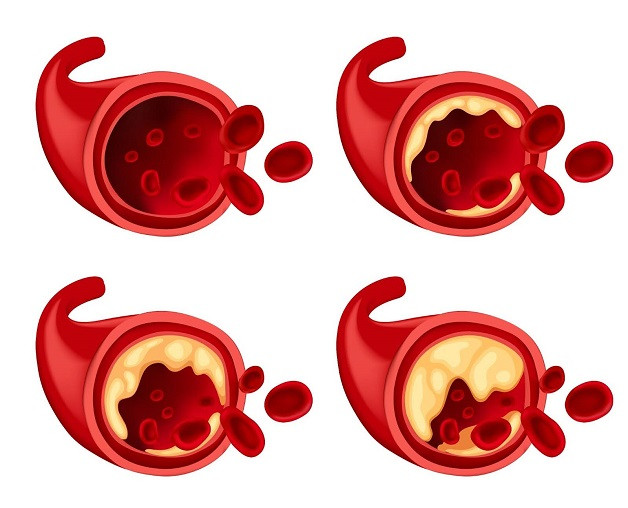Increased risk of cardiovascular disease in cold weather and how to prevent it
Low temperatures often lead to increased risk of cardiovascular diseases. Winter is now underway, this is the time when people with cardiovascular diseases can face many dangers, and need to pay attention to prevention.
Cold weather and the potential risk of heart disease
In winter, the weather in the North often drops. In Vietnam, there are even days when the temperature is below 10 degrees Celsius. This not only causes a constant feeling of cold, affecting people's lives and work, but also poses potential risks to the cardiovascular system.
Dr. Nguyen Ngoc Lan said that the number of patients coming to Thu Cuc TCI Healthcare System for examination and treatment of heart disease often increases in winter. The main subjects are the elderly and people with heart disease.
According to a study published in a British medical journal, for every 10 degrees Celsius drop in average temperature, the risk of heart attack increases by 2%. Research by the American College of Cardiology (ACC) shows that more than 50% of heart attacks occur in winter.
Heart attacks often occur in the morning, when the patient first wakes up, especially in the cold months. Older people are at higher risk because their bodies age, leading to a reduced ability to adapt to changes in the weather.

The effects of cold weather on cardiovascular health
Dr. Lan said that in cold weather, the heart has to work harder to maintain a stable body temperature. This can lead to high blood pressure, heart rhythm disturbances and weaken the heart over time.
Cold weather increases the secretion of catecholamines in the blood, leading to peripheral vasoconstriction. As a result, the amount of blood returning to the heart increases and causes high blood pressure.
"Normal blood pressure is 120/80 mmHg. If systolic blood pressure is over 180 mmHg, it is a cause for concern. In cold weather, blood pressure in people with a history of high blood pressure can increase to 200 mmHg. If not detected and treated promptly, it can cause vascular rupture and death. Cold weather also increases the risk of sudden blood pressure attacks in people with diabetes," Dr. Lan emphasized.
Meanwhile, people with coronary artery disease often have a higher than normal need for oxygen for the heart muscle. They often show signs of coronary artery disease such as chest pain, shortness of breath and risk of acute myocardial infarction.
Low temperatures lead to an increase in platelet count, red blood cells and blood viscosity, increasing the risk of coronary artery disease and peripheral vascular disease.
Working in cold weather is a potential danger to the cardiovascular system. Because the body is trying to complete the work while trying to create energy to keep warm, it can increase the risk of heart attack. People with cardiovascular disease, high blood pressure, diabetes are at higher risk of cardiovascular events than normal people even with only light exertion in the cold season.

Protect your body and prevent cardiovascular risks in cold weather
Cold weather is a health threat. However, not everyone is fully aware of this. Therefore, many people still subjectively go outside in cold temperatures without proper protection measures.
Doctor Nguyen Ngoc Lan gives some recommendations to reduce the risk of cardiovascular disease in the cold season as follows:
- Keep your body warm by wearing enough warm clothes even when at home. When going out, you need to wear warm clothes, thick socks, scarves, woolen hats, and masks to avoid cold air contact with sensitive areas such as the scalp, face, and neck because this can cause vasoconstriction, which adversely affects the cardiovascular system. In particular, the elderly need to be dressed more warmly because body temperature can easily drop in cold weather.
- Avoid doing heavy work within the first 30 minutes after waking up. If you have to work in cold weather, you can warm up before going out and starting work.
- Drink water daily, about 2 - 2.5 liters or 6 - 8 glasses of warm water daily. Heart failure patients should consult their doctor about daily water intake.
- Do not eat too much, drink coffee or smoke within 1 hour before doing heavy work, as this can increase heart rate.
- Get proper rest, 7-8 hours of sleep per night. Make sure the bedroom is warm enough but well-ventilated.
- Exercise regularly even on cold days with exercises such as tai chi, yoga, qigong, jogging, etc. You should exercise indoors to avoid exposure to cold weather. Consult your doctor for exercises suitable for your physical condition and health status.
"The most important thing is to regularly check blood pressure, blood sugar, and weight at home, especially on days when the temperature drops to ensure that cardiovascular health is still under control. In addition, patients can write in a diary and can adjust the dose of medication if necessary after consulting a specialist's instructions," Dr. Lan added./.


